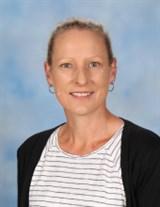Update from Bryony Lowe - Learning Specialist

Dear Families, Students and Community Members,
Educational research indicates effective educational change in schools takes approximately 5-7 years. With the impact of Covid 19, and our subsequent move to remote learning, we have shortened this time line of change to less than six months. This has required a monumental effort from the school leadership, the teaching and ES staff, parents and the students themselves. The move to remote teaching and learning has meant an enormous learning curve for teachers in our pursuit of flexibility and adaptability in the planning and delivery of classes requiring some routine and framework for students, while still delivering rigorous learning outcomes, in line with the curriculum standards set out by the Department of Education. Engagement in learning also plays a key role, with an exponential growth in understanding the effective use of IT in the classroom. It has also required an enormous effort on the part of students to adapt to this new way of learning.
In our efforts to respond to this changing environment, the school has used important survey tools to engage staff, parents and students in providing feedback on teaching and learning practices, wellbeing and school policies in an effort to constantly respond to student needs. We thank each and everyone who has contributed to these surveys. They have helped to shape the current context of our learning environment as the results are discussed widely everywhere from Leadership meetings, Learning Area meetings and Year Level meetings to smaller teaching teams. There have been a number of important changes that have been implemented based on this feedback - including shortened lessons, no homework and check-ins with students to ask them how they are going and feeling. Student feedback suggested this was an important contributing factor in their feeling of connectedness to school and peers and the teachers’ empathy towards students and their wellbeing. Organisational, student wellbeing and study tips have also been included in Home Group and My Mentor sessions, as well as opportunities for students to still become involved in extra-curricular activities such as Mordi Idol, College Crown and House Competitions. This feedback also helps to shape our future practices, providing important data for our School Review.
Some positives to come out of this situation we find ourselves in this year is that students will have developed skills that will take them beyond the classroom in terms of intrinsic motivation, concentration, organisation and a willingness to ask for assistance when unsure. In terms of future impacts on students’ learning, we use an inquiry cycle model with any unit of work we deliver to assess each and every student’s current level of understanding, and adapt our teaching and tasks to suit the level of understanding in all of our students. This is a school-wide model of practice that allows us to cater to the learning needs of each and every student in our class, no matter what their starting point is. This means a focus on student ‘growth in understanding’ from their starting point rather than every student reaching ‘at level’ or ‘above level’ standards.
So what does planning a lesson or unit of work entail?
Depending on the lesson or unit, teachers include literacy strategies (a school priority), starters or hooks to engage students or review a previous lesson’s work, a direct instruction component where examples are modelled or exemplar work samples provided, a student practice and consolidation phase, student discussion or group work and a plenary/reflection/exit pass for the lesson which reviews what the students have learnt. To add a layer of complexity to this, individual teachers adapt unit outlines and plans to better suit the needs of the students in their class, while also planning for IT that suits the context of learning and any students with special needs or ESL needs. It’s complicated and time-consuming work and takes an extraordinary level of thought and planning. Thank you to all teachers and ES staff for your dedication in planning the best learning experiences you can provide for your students.
Thank you also to the students for engaging in the lessons, participating and completing assigned tasks.
Moving forward, priorities of every Victorian government school in Term 4 will be to:
- begin the process of catch-up learning and continue to extend those who progressed well during remote and flexible learning
- support students to re-establish friendships and class groups when back on site, and provide additional support where needed
- help every student prepare for 2021 with a sense of purpose and optimism
- ensure students continue to develop their literacy and numeracy knowledge and skills, build their personal and social capability and are physically active.
Secondary schools will also:
- ensure every 2020 Year 12 student can complete their VCE and VCAL, and appropriately mark this significant milestone
- support students’ sense of direction and opportunity, including learning about areas of employment demand in the coming years
- help students starting Year 7 in 2021 to become familiar with teachers, new friends and the school setting.
So what’s happening this week?
- Period 4 Thursday 17th September – Mordi Idol
- Early finish at 2.30pm on Friday. Please note the following revised lesson schedule:
Period 1 - 8.55 -10.00
Recess - 10.00 – 10.25
Period 2 - 10.25 – 11.30
Period 3 - 11.30 – 12.35
Lunch - 12.35 – 1.25
Period 4 - 1.25-2.30
Have a very relaxing break. I think we have all earned it!
Stay safe and well.
Bryony Lowe
Learning Specialist

